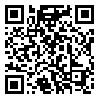Thu, Jan 8, 2026
[Archive]
Volume 13, Issue 1 (3-2023)
ASE 2023, 13(1): 4077-4084 |
Back to browse issues page
Download citation:
BibTeX | RIS | EndNote | Medlars | ProCite | Reference Manager | RefWorks
Send citation to:



BibTeX | RIS | EndNote | Medlars | ProCite | Reference Manager | RefWorks
Send citation to:
Chehardoli H. Engine Saturation Effect on Consensus of Decentralized Bi-Directional Nonlinear Self-Driving Vehicle Convoys. ASE 2023; 13 (1) :4077-4084
URL: http://ase.iust.ac.ir/article-1-627-en.html
URL: http://ase.iust.ac.ir/article-1-627-en.html
Department of Mechanical Engineering, Ayatollah Boroujerdi University
Abstract: (16393 Views)
In this paper, the consensus of second-order nonlinear self-driving vehicle convoys (SDVCs) is studied. We assume that each self-driving vehicle (SDV) communicates only with one front and one rear SDVs. Each SDV’s nonlinear dynamics consisting of the rolling resistance and the air drag force is a function of SDV’s speed and is investigated in SDVC’s modeling and consensus design. Since the speed is bounded, all vehicles’ nonlinearities are also bounded. Due to engine saturation of each SDV, the control input is limited. We involve this limitation by introducing the arctan(.) function to control protocol. The inter-SDV’s distances are assumed to be constant during motion. The distance tracking error associated with each SDV is defined as distance between it and the leading SDV. The error dynamics of the proposed SDVC is derived after applying the consensus law to each SDV. To prove the internal stability, the Lyapunov theorem is employed. We will prove that under this consensus algorithm, the SDVC will be internal stable. To validate the effectiveness of this method, a SDVC comprising a leading and 6 following SDVs will be studied. It will be verified that under the proposed consensus law, all the SDVs reach a unique consensus.
Keywords: Self-driving vehicle convoy (SDVC), Engine saturation, Bi-directional, Lyapunov function, Second-order nonlinear SDVs
Send email to the article author
| Rights and permissions | |
 | This work is licensed under a Creative Commons Attribution-NonCommercial 4.0 International License. |






